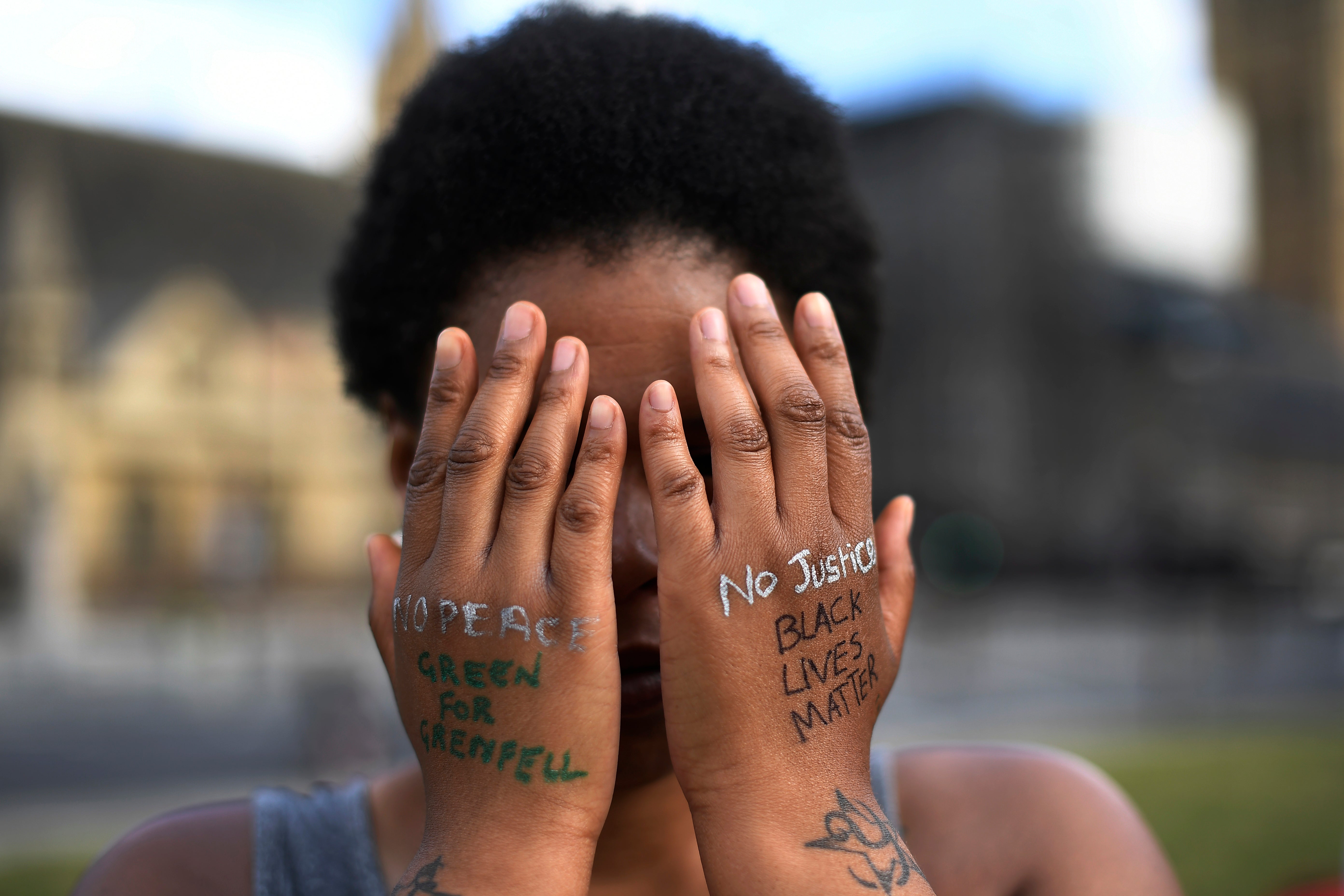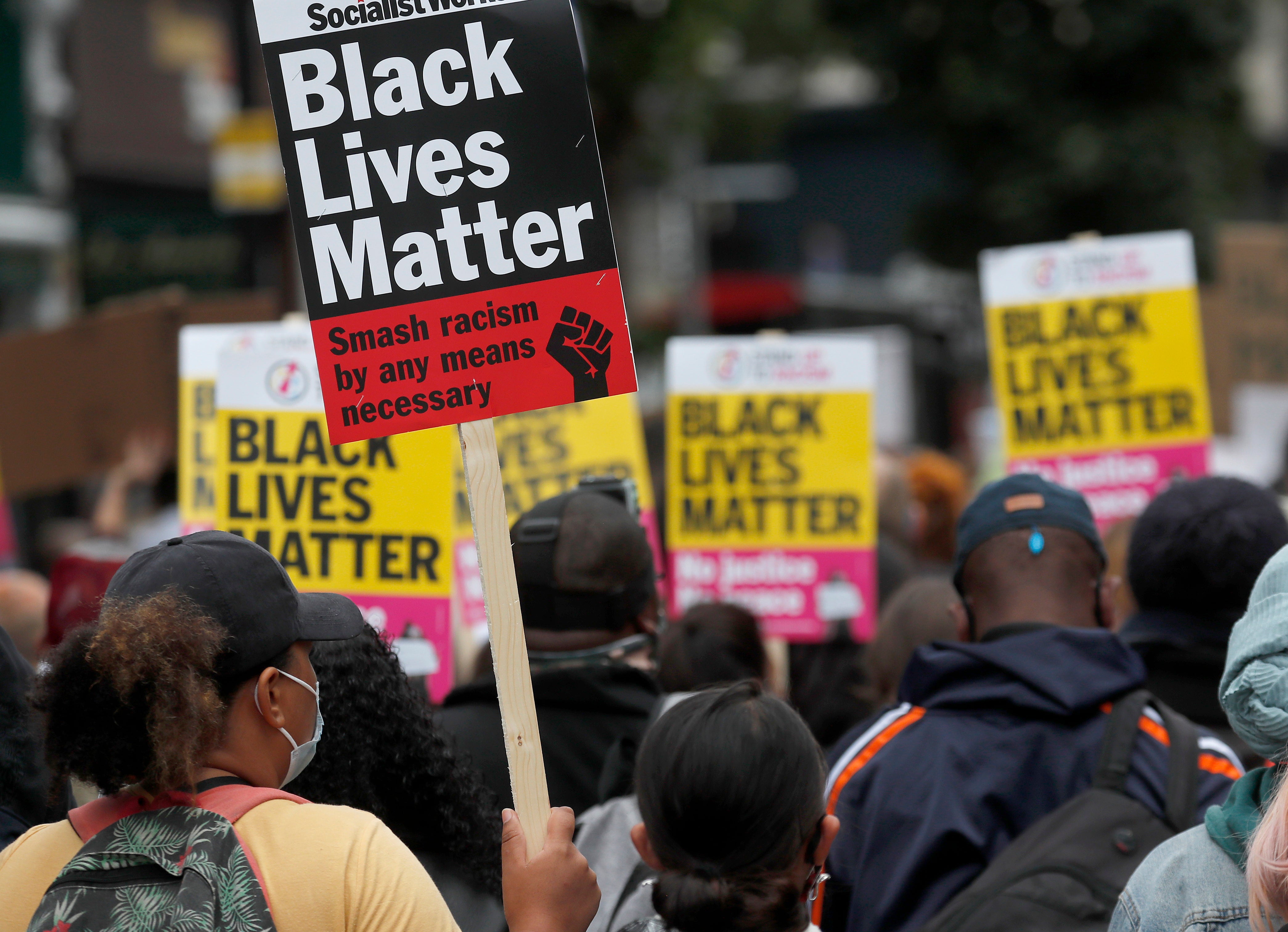Race report: The key findings
Study controversially concludes that while ‘overt’ prejudice exists, there is no evidence it is structural
Your support helps us to tell the story
From reproductive rights to climate change to Big Tech, The Independent is on the ground when the story is developing. Whether it's investigating the financials of Elon Musk's pro-Trump PAC or producing our latest documentary, 'The A Word', which shines a light on the American women fighting for reproductive rights, we know how important it is to parse out the facts from the messaging.
At such a critical moment in US history, we need reporters on the ground. Your donation allows us to keep sending journalists to speak to both sides of the story.
The Independent is trusted by Americans across the entire political spectrum. And unlike many other quality news outlets, we choose not to lock Americans out of our reporting and analysis with paywalls. We believe quality journalism should be available to everyone, paid for by those who can afford it.
Your support makes all the difference.A long-awaited report commissioned in the wake of the Black Lives Matter movement has concluded, controversially, that there is no evidence of “institutional racism” in the UK.
While the study, led by Dr Tony Sewell, chair of the Commission on Race and Ethnic disparities, found there was evidence that “overt” prejudice exists, it ruled that there was no proof that it was structural.
Here we summarise the key findings from the report, and its recommendations.
UK ‘not institutionally racist’
One of the standout conclusions of the report was that claims the UK is institutionally racist were not borne out by the evidence.
The commission said they had “argued for the use of the term ‘institutional racism’ to be applied only when deep-seated racism can be proven on a systemic level and not be used as a general catch-all phrase for any microaggression, witting or unwitting”.
Read more:
- Race report news – live: Investigation branded an ‘insult’
- ‘Institutional racism doesn’t exist,’ government’s race commission suggests
- Who are the authors behind government’s race report?
- Race campaigners ‘deeply, massively let down’ after government’s report
- It’s right to get rid of ‘Bame’ – but this report minimises racism in the process
Mr Sewell said that while there was anecdotal evidence of racism, he denied there was any proof that it was structural, saying there was data to show some ethnic minorities were doing well in the jobs market and in education.
This was widely disputed, including by Dr Halima Begum, chief executive of the Runnymede Trust, who said it was “deeply, deeply worrying” that the commission has denied the existence of institutional racism, and independent MP Claudia Webbe, who tweeted that the finding was a “slap in the face”.
UK ‘should be model for rest of world’
The report also concluded that success in education and, to a lesser extent, the economy “should be regarded as a model for other white-majority countries”.
It said the UK had “come a long way in 50 years” and that there was an “attention to race equality”, including in policy making and the media, that was “seldom found in other European countries”.
The report added: “There is an expectation of ethnic minority voices at the top of politics – across the political parties, and in law, education, medicine, business, media and culture – that did not exist a generation ago and is still too rare elsewhere.”
Bame acronym
The commission recommended that the acronym Bame (black, Asian and ,minority ethnic) should no longer be used as differences between groups are as important as what they have in common.
The commission said use of the acronym “disguises huge differences in outcomes between ethnic groups” which “allows our institutions and businesses to point to the success of some Bame people in their organisation and absolve themselves of responsibility for people from those minority groups that are doing less well”.
Education
When it comes to education, the report said children from many non-white communities do as well or better than white pupils in compulsory education, with black Caribbean pupils the only group to perform less well.
When comparing GCSE grades in English and maths, the white British group ranked 10th in attainment, with the Chinese and Indian ethnic groups outperform that group by wide margins, the report suggested.
The commission said that education had been the “single most emphatic success story of the British ethnic minority experience”, though it acknowledged that some groups “experience lower than average educational outcomes which can have a significant impact on employment rates, earnings and general wellbeing”.
It said that a higher percentage of ethnic minority young people attend university compared with white British young people – but the latter have the best outcomes at top universities.
“Too many people are dropping out of university or not getting graduate jobs several years after graduating,” a summary of the report said.
It called for guidance to be issued to higher education institutions to help reduce disparities in applications at an earlier stage.
It also said pupils should be exposed to the “rich variety” of British culture including empire and the arrival of the Windrush generation.

Health
On health, the commission called for the creation of a new independent office for health disparities which would target differences in health experiences and outcomes across the UK.
It added: “The commission rejects the common view that ethnic minorities have universally worse health outcomes compared with white people, the picture is much more variable.”
The report pointed to the fact ethnic minorities had better outcomes for some key measures like life expectancy, overall mortality and key diseases and conditions saying: “This evidence clearly suggests that ethnicity is not the major driver of health inequalities in the UK but deprivation, geography and differential exposure to key risk factors.”
It said more research was needed into the reasons for differences between groups.
Employment
The report found employment rates were “significantly lower” for black people, and those from Pakistani and Bangladeshi backgrounds.
But it said the pay gap was at its lowest level since 2012, at 2.3 per cent.
Employees from the white Irish, Indian and Chinese ethnic groups on average have higher hourly earnings than the white British ethnic group, it said.
“Ethnic minorities have been making progress up the professional and occupational class ladder, though some more than others, and there remains under-representation at the very top,” the report summary noted.
Organisations who choose to publish ethnicity pay figures should also be required to produce an action plan to explain why any disparities exist and what will be done to address them.

Policing
The report’s authors said they undertook extensive examination of data to establish causes of key disparities in crime and policing, including commissioning new research.
It concluded that black people were disproportionately victims of violent crime and homicide. For every white victim of homicide aged 16 to 24 in the year 2018/19, there were 24 black victims, the report suggested.
Stop and search was described as a “critical tool for policing when used appropriately” but communities were said not to have been given enough information about why stop and search powers were being used in a specific area.
The report added that non-white police officers were experiencing racist abuse from the general public, and that racist assaults against those serving in the Metropolitan Police had almost doubled between the year ending November 2019 and November 2020.
“No police services were fully ethnically representative of the population they serve although the commission has identified some who are, independently, making substantial progress towards achieving that goal and commends them accordingly,” the summary concluded.
Reaction
Voices ranging from Labour’s David Lammy and Sir Keir Starmer to equality campaigners and university professors expressed their disappointment in the findings.
Mr Lammy said the report was an “insult to anybody and everybody across this country who experiences institutional racism”.
Labour leader Sir Keir said there had been “report after report” on the issue and called for a full race equality act.
Black studies professor Kehinde Andrews branded the review a “PR move to pretend the problem [of racism] doesn't exist”.
Kunle Olulode, director of Voice4Change England, said the findings included examples of progress but also “disturbing” points which need to be addressed.
Dr Halima Begum, chief executive of the Runnymede Trust, said she felt “deeply, massively let down” by the report, and does not feel the government has the confidence of black and minority ethnic communities.
Join our commenting forum
Join thought-provoking conversations, follow other Independent readers and see their replies
Comments